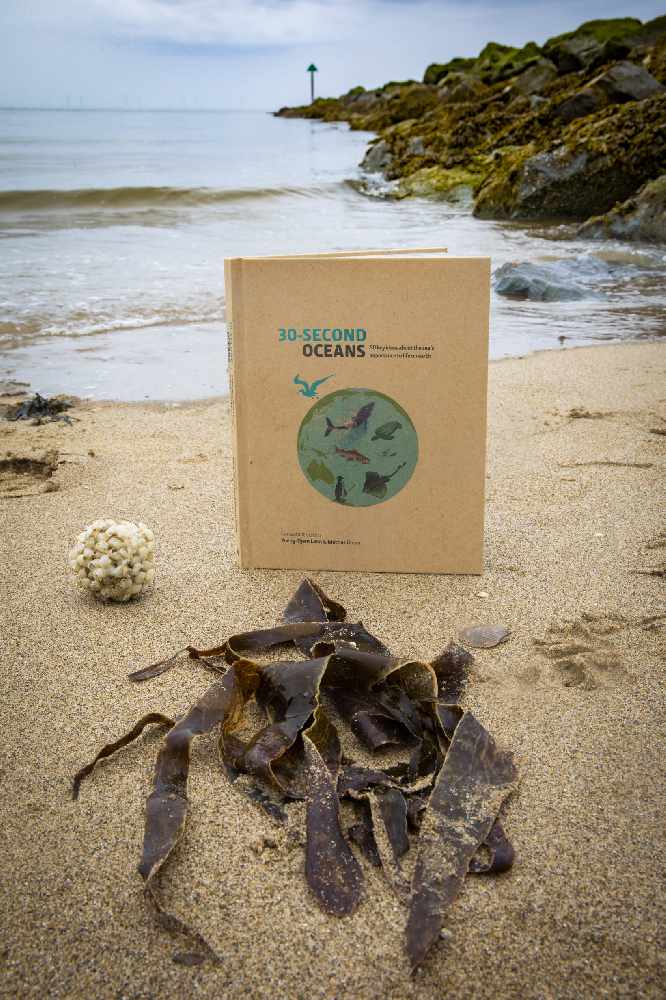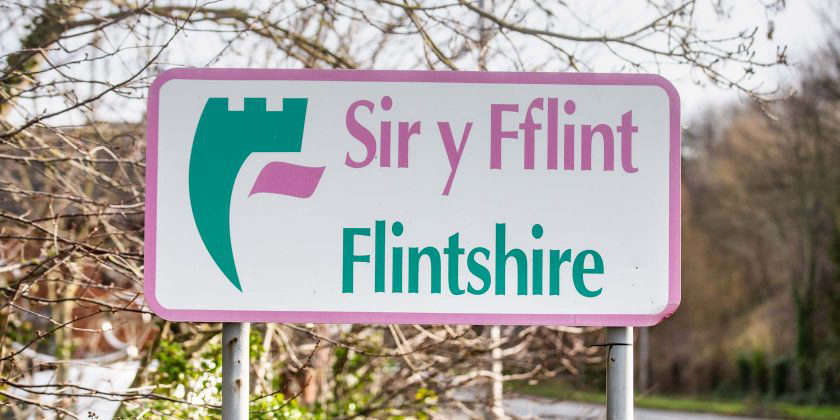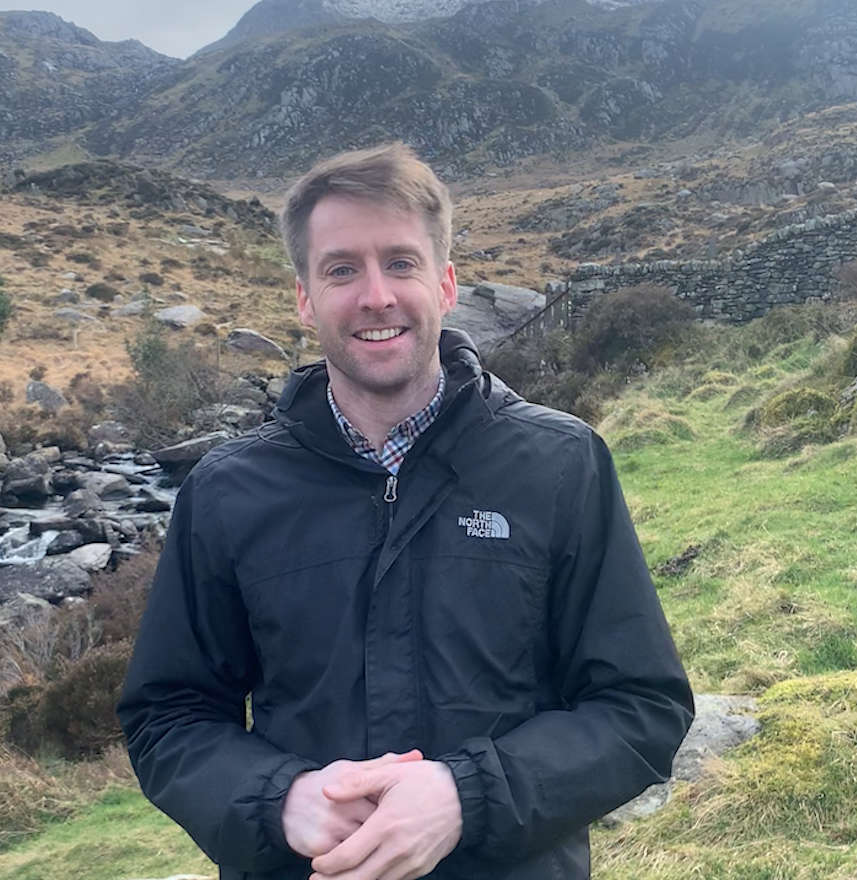
Rising sea levels could cut North Wales main A55 road link, wash away railways, swamp holiday resorts and threaten businesses along the coast by the end of this century, according to leading ocean scientists.
That’s the warning from two Bangor University academics who have just published a major new work on the future of the world’s seas, 30 Second Oceans, as World Oceans Day (June 8) approaches.
Oceanographers Dr Yueng Dern Lenn, .from Chester, and Dr Mattias Green, from Glan Conwy, edited the book which has eminent contributors from around the world and covers 50 topics about the world’s oceans, their weather and climate and the challenges faced by the communities which live on their shores.
That includes the threat of rising sea levels, higher tides and more frequent storm surges to the North Wales coast including to the region’s key transport routes, the A55 and the North Wales Coast railway to Holyhead.
Dr Green, originally from Gothenburg, in Sweden, said: “Both those major infrastructure links are very close to the coast and already flood due to heavy rain and will be at risk as sea levels rise.
“A combination of heavy rain and a storm surge from the sea and we’ll be in trouble.
“The railway line would go first, between Bangor and Llandudno would be the first section affected, and there are places along the North Wales coast that will flood, particularly in North West Wales.
“There and along the Dee estuary there are thousands of static caravans and a major industrial area at Deeside which could be affected.
“We have already seen the Conwy Valley railway line, which runs four or five trains a day, closed several times in recent years and the track has been washed away by flooding.
“Add in a rise in sea level and it will be worse so it is inevitable that flood defences will have to be put in place at very high cost.
“In the UK we can probably afford that but elsewhere in the world, India, Bangladesh and the Maldives, for example, many low-lying countries simply can’t afford those kinds of defences.”
Coastal flooding around the world is set to rise by 50 per cent over the next 80 years, with millions of homes and businesses across the UK facing an uncertain future because of rising sea levels with northern Europe including the UK among the worst affected areas.
Germany is already building sea defences on its North Sea coast to cope with a half metre rise in sea level and those defences are designed to be easily increased by a further metre to future-proof the shore.
Dr Green said: “If we see that kind of sea level rise we could also see the disappearance of many of our sandy beaches.
“As scientists we can only advise. Politicians will have to take decisions on how best to protect the North Wales coast from flooding but prevention is always better than cure.”
Both Dr Lenn and Dr Green are from Bangor University’s acclaimed School of Ocean Sciences and they have enlisted a number of colleagues as well as academic experts from around the globe to contribute to 30 Second Oceans.
Dr Lenn, originally from Singapore and a graduate of the University of San Diego, in California, said: “We have already seen a community just south of Barmouth where the local council have decided they can’t defend it from the sea.
“It’s like the proverb about not buying a house built on sand because living by the sea is all well and good but the challenge for the UK is the effect of more extreme weather on where we live and where the sea starts.”
She said: “We also saw this book as an opportunity to improve representation within ocean sciences by including many women scientists and colleagues from all levels of academia from early career scientists to celebrated professors.
“Together our authors hail from 22 institutions and represent many more countries. The oceans span the globe and have an impact on us all.”
It aims to be accessible to all, covers 50 topics about oceans and includes biographies of important scientists while covering how oceans and their waves and tides work, their depth, weather and climate.
It also covers ocean pollution - light and noise as well as plastic - and how to stop it getting into the water.
30 Second Oceans: 50 key ideas about the sea's importance to life on earth, edited by Yueng-Djern Lenn and Mattias Green, is published by Ivy Press, and is available in hardback for £14.99.
For more on Bangor University go to:
Pictured - Water Margin – 30 Second Oceans editors Professors Yueng-Djern Lenn and Mattias Green, of Bangor University.
(Pictures by Mandy Jones Photography)

 Constabulary to receive £4m funding boost to keep Cheshire’s communities even safer
Constabulary to receive £4m funding boost to keep Cheshire’s communities even safer
 CFCW Match Report: Chester FC Women 3 - 0 Wigan Athletic Ladies
CFCW Match Report: Chester FC Women 3 - 0 Wigan Athletic Ladies
 CELEBRATION OF CLASSICAL DANCE MUSIC SET TO BE STAGED AT WREXHAM'S WILLIAM ASTON HALL
CELEBRATION OF CLASSICAL DANCE MUSIC SET TO BE STAGED AT WREXHAM'S WILLIAM ASTON HALL
 Community unites to save Northgate Arena’s whale!
Community unites to save Northgate Arena’s whale!
 Man jailed for attempting to smuggle illegal drugs into Cheshire music festival
Man jailed for attempting to smuggle illegal drugs into Cheshire music festival
 Weekend and overnight closures for vital A550 Welsh Road repairs
Weekend and overnight closures for vital A550 Welsh Road repairs
 Blues Match Report: Chester FC 2 - 1 Marine
Blues Match Report: Chester FC 2 - 1 Marine
 Ellesmere Port school chosen to benefit from multi-million pound nursery funding
Ellesmere Port school chosen to benefit from multi-million pound nursery funding
 Tripadvisor rankings name Chester Zoo as the UK’s best zoo.
Tripadvisor rankings name Chester Zoo as the UK’s best zoo.
 Blues Match Preview: Chester FC v Marine
Blues Match Preview: Chester FC v Marine
 Blues Match Report: Southport 0 - 1 Chester FC
Blues Match Report: Southport 0 - 1 Chester FC
 Sam Rowlands MS is urging people to have their say on merging four schools in North-East Wales
Sam Rowlands MS is urging people to have their say on merging four schools in North-East Wales
 Pioneering dental surgery at Chester Zoo cured a sloth’s toothache
Pioneering dental surgery at Chester Zoo cured a sloth’s toothache
 Drug dealer jailed after eagle-eyed officer spots him speeding in a car full of class A drugs
Drug dealer jailed after eagle-eyed officer spots him speeding in a car full of class A drugs
 Enjoying the Countryside in Flintshire
Enjoying the Countryside in Flintshire
 Member of the Welsh Parliament urges dog owners to keep their pets on a lead when in the countryside
Member of the Welsh Parliament urges dog owners to keep their pets on a lead when in the countryside
 Chester and Wirral Football League - Latest Results
Chester and Wirral Football League - Latest Results
 Heartfelt and Hilarious New Show by Disabled Artists Comes to Ellesmere Port
Heartfelt and Hilarious New Show by Disabled Artists Comes to Ellesmere Port
 Fly High Media Shortlisted for Prolific North Champions Awards 2025
Fly High Media Shortlisted for Prolific North Champions Awards 2025
Comments
Add a comment